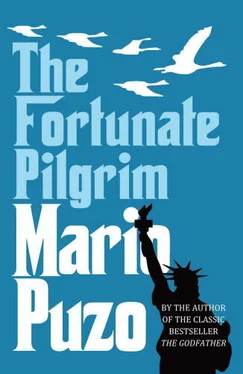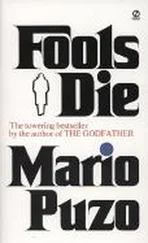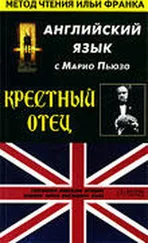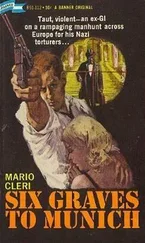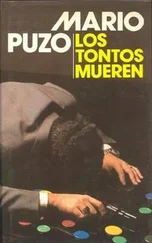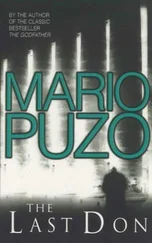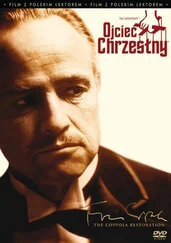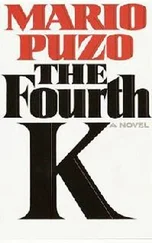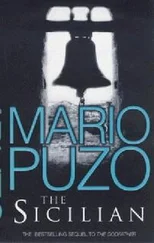Suddenly Vinnie looked up. He stared at Gino without expression. He lit a cigarette. With surprise, Gino realized that Vinnie couldn’t see him, nor could any of the others. He was standing in darkness outside their world. He walked past the first line of desks into the living yellow square. As if he had blocked out the sun, heads snapped up. Vinnie raised his eyes.
There was a heartbreaking gladness on Vinnie’s face. His smile was sweet, as it had been in their childhood. Gino raised the lunch bag and threw it. Vinnie caught it expertly and Gino went to stand awkwardly by his desk.
“Thanks, kid,” Vinnie said. The men on either side of him stopped typing, and he said to them, “This is my kid brother, Gino.”
Gino was embarrassed at the pride in Vinnie’s voice. The two men said “Hiya, kid,” and gave him cold, appraising looks. He became conscious of his blue dungarees and white wool sweatshirt and felt foolish, as if he had come to some grave assembly frivolously attired. The gray-faced man called out, “Bill freight, you guys, we’re running behind.” Then he shambled over to Vinnie and gave him a sheaf of bills. He looked like a lean old rat. “You’re behind your count now, Vinnie,” he said.
Vinnie said nervously to the retreating back, “I won’t take my break later.” Gino turned to leave. Vinnie got up and walked him out of the circle of light to the elevator. They waited, listening to the grind of iron cables and the growl of the ascending cage.
“Take a short cut through the railroad yard,” Vinnie said. “But watch your ass when those engines come down.” He rested his hand on Gino’s shoulder. “Thanks for bringing my lunch. You got a game Saturday?”
“Yeah,” Gino said. The elevator was taking a long time. He wanted to get out. He saw Vinnie glance nervously toward the clattering machines in the circle of light and flinch as the gray rat face turned, blindly seeking them in the darkness.
“If I get up in time I’ll come watch,” Vinnie said. Then the elevator was there, its two iron doors sliding back, and Gino stepped in and began the slow descent. The smell of decay, of rats, and of old shit made him sick. When he stepped out of the building he lifted his head to the warm, lemon, September sunlight. He stood still in almost joyful relief and freedom.
He didn’t give Vinnie another thought. He started to run slowly through the railroad yard, a great field of gleaming white steel that alternately fanned out and converged mysteriously in the sun. He cradled his right arm as if he were carrying a football and sped over the wooden ties, slipping around the steel rails that came together to trap his flying feet. Black locomotives came toward him and he slipped away easily to the left and right, picking up speed. A locomotive came up behind him, its engineer seated at the window on Gino’s side. Gino raced it, going full speed across the wooden ties alongside the engine, flying ahead, until the engineer gave him a casual glance and then the black engine chugged louder and clacked past him. When it swerved off into a maze of stationary brown and yellow freight cars, Gino stopped, exhausted. He felt a little sweat beneath his white woolen jersey and he was ravenously hungry, thirsty—and then suddenly he found himself strong and fresh again. He swung into a long, loping run to Chelsea Park. There he saw his friends tossing a baseball and waiting for him.
CHAPTER 21

ONE MORNING A week later Lucia Santa woke up sensing that something was wrong. Sal and Lena were still in bed. Sometime in the early morning hours Lucia Santa had heard Gino come home; she knew his careless, noisy undressing. But Vinnie she had not heard. Then she remembered that Monday was his night off, and on those nights he sometimes came home even later than Gino.
Though she knew it was impossible for anyone to enter the house without her waking, she checked Vinnie’s bed. He now used Octavia’s old room, the only private one in the apartment. The bed had not been slept in, but Lucia Santa was not seriously alarmed. Later, when she had sent the children off to school, she leaned on the pillowed window sill and watched for him to appear on the Avenue. Time went by; she saw the early shift of trackwalkers come across the Avenue for lunch and knew it must be nearly noon. For the first time she became worried. She put on a heavy knit wool jacket and went downstairs to see Lorenzo.
She knew her oldest son was always at his worst in the morning, but she was too nervous to wait. She found Larry at his morning coffee, rumpled undershirt draped over with black wiry chest hair. He sipped his coffee and said with real impatience, “Ma, he’s not a baby, for Chrissakes. Whatever he’s doing, he got through too late to come home. When he wakes up he’ll go to work.”
“But what if something happened to him?” Lucia Santa asked anxiously. “How would we know?”
Larry said drily, “Don’t worry, the cops got their nose in everything.”
Louisa poured coffee for the mother. Her beautiful heavy face, usually placid, was also worried. She was fond of Vinnie—she knew him better than anyone except his mother, and she felt the absence strange. “Larry, please go and look,” she said.
This was so unusual for her that Larry gave up. He patted his mother on the shoulder. “I’ll go up to Vinnie’s office, O.K., Ma? Now let me finish my coffee.” And so Lucia Santa had to go back upstairs and wait.
At three o’clock Gino and the children came home from school, and still Larry had not returned. The mother tried to make Gino stay with her, but he seemed not to understand. He fled without even answering, stopping only to grab his football. Sal and Lena did their homework on the round kitchen table and she fixed bread with olive oil and vinegar for them. Finally, at five o’clock, Larry came to tell her that Vinnie was not at work and that nobody had heard from him. She could see that Larry was worried, too, and she began wringing her hands and calling on God in Italian.
LOUISA CAME UPSTAIRS with her children and tried to quiet the mother. In the turmoil no one heard the other footsteps coming up behind her. Suddenly there was the black uniform of a railroad Bull in the doorway, beside him the gray face of the Panettiere. The Panettiere stepped in front of the Bull, as if to stop Lucia Santa from seeing and hearing him, unconsciously holding both his hands up, palms toward her, in a gesture of such unutterable pity that Lucia Santa was struck dumb. It was Louisa who suddenly wailed in terror.
GINO WAS SITTING quietly on the Hudson Guild stoop with his friends when Joey Bianco came by and said to him, “You better go home, Gino, there’s a lot of trouble at your house.”
Gino rarely saw Joey Bianco anymore. They had grown out of their comradeship, as children do, and now they felt embarrassed by each other. So Gino did not try to stop Joey as he kept walking, or ask him what had happened. He almost didn’t even bother to go home, but then decided to see what it was all about.
He short-cutted diagonally across Chelsea Park and ran easily along Tenth Avenue until he reached the corner of 30th Street. Then he saw a crowd in front of his tenement and started walking very slowly.
There was no one from the family in the crowd. Gino ran up the stairs and into the apartment.
It was thronged with neighbors. In the corner by the window Gino saw Sal and Lena standing stiff and alone, faces blank with fright. Part of the crowd eddied away, and he could see his mother seated in a chair. Dr. Barbato was holding a needle in the air. Larry was gripping his mother with all his strength to keep her from bucking up and down in convulsions.
Читать дальше
